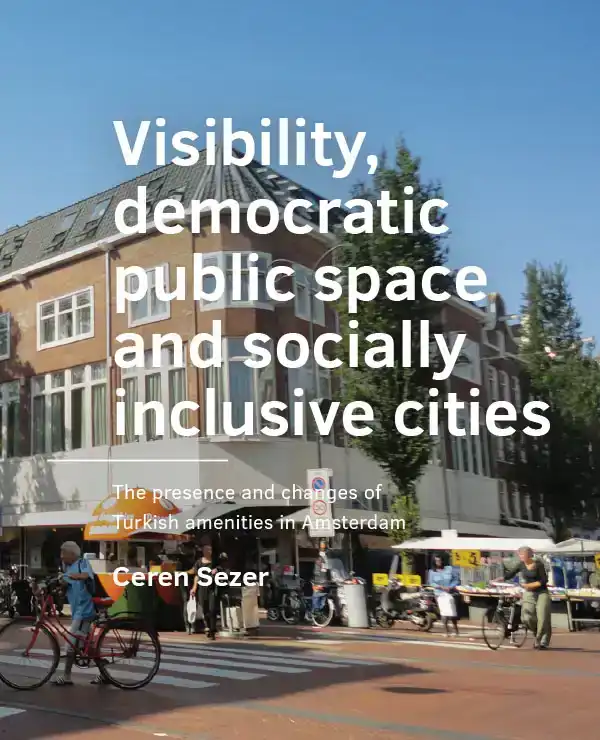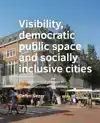- Engels
- Pockets
- kunst algemeen
- bouwkunst, archit.
- VISIBILITY, -DEMOCRATIC PUBLIC SPACE AND SOCIALLY INCLUSIVE
SEZER, CEREN
VISIBILITY, -DEMOCRATIC PUBLIC SPACE AND SOCIALLY INCLUSIVE
29,95incl BTW
Vertrouwd sinds 1927
Persoonlijke aandacht en advies
Vanaf 17,50 gratis verzenden NL & BE
Meer dan 150.000 artikelen online
Omschrijving VISIBILITY, -DEMOCRATIC PUBLIC SPACE AND SOCIALLY INCLUSIVE
This research introduces the concept of visibility as a useful tool to assess the democratic features of public spaces. It understands democratic public spaces as open spaces, which are accessible to all and allow different cultural expressions for i
ndividuals and groups. The concept of visibility refers to the visual perception of the observable features of distinctive urban groups in public space, which give evidence of how these groups engage with, shape, and construct public space. The resea
rch argues that the visibility of distinctive urban groups on the street manifests the rights of these groups to participate in public life, a key feature of socially inclusive cities. Consequently, the presence and change in visibility of urban grou
ps in public space is highly political, raising issues in relation to just and unjust urban conditions. This research uses the visibility of Turkish amenities in Amsterdam as a proxy for the presence and appropriation of public spaces by Turkish immi
grants in the context of urban transformation processes in the period between 2007 and 2016. It concludes by presenting the implications of the findings of empirical analysis for urban design and planning practice and research.
ndividuals and groups. The concept of visibility refers to the visual perception of the observable features of distinctive urban groups in public space, which give evidence of how these groups engage with, shape, and construct public space. The resea
rch argues that the visibility of distinctive urban groups on the street manifests the rights of these groups to participate in public life, a key feature of socially inclusive cities. Consequently, the presence and change in visibility of urban grou
ps in public space is highly political, raising issues in relation to just and unjust urban conditions. This research uses the visibility of Turkish amenities in Amsterdam as a proxy for the presence and appropriation of public spaces by Turkish immi
grants in the context of urban transformation processes in the period between 2007 and 2016. It concludes by presenting the implications of the findings of empirical analysis for urban design and planning practice and research.
Specificaties
- MerkBK Books
- GroepKUNST ALGEMEEN (640)
- Barcode9789463662543
- LeverstatusActief
Reviews
0.0/5.0
Gemiddelde uit 0 reviews
Meest behulpzame reviews
Nog geen reviews geschreven


